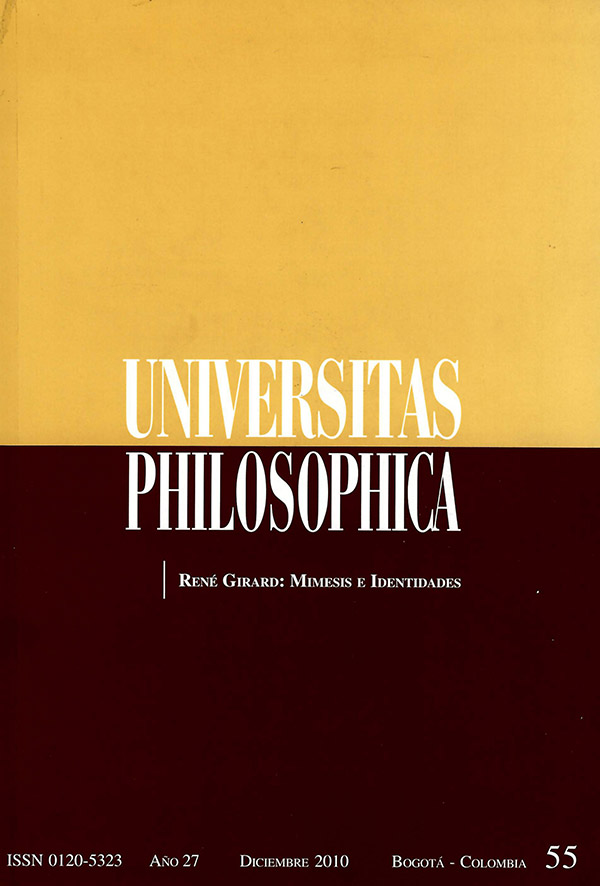Abstract
In this article the author explores the extent of René Girard's “mimetic theory” to understand migration phenomenon. To this end, a brief description of the “mimetic theory” and a characterization of the migration are presented. Subsequently, it raises the need to explore new perspectives on migration beyond the positivist approach in the human sciences which leaves the contribution of a philosophical understanding out. In this sense, girardian philosophy is pertinent to understand several types of migration: irregular immigration, forced displacement and refuge. Finally, the author proposes a praxis to avoid, or at least minimizes, the persecutory mimetic process related to migration.
This journal is registered under a Creative Commons Attribution 4.0 International Public License. Thus, this work may be reproduced, distributed, and publicly shared in digital format, as long as the names of the authors and Pontificia Universidad Javeriana are acknowledged. Others are allowed to quote, adapt, transform, auto-archive, republish, and create based on this material, for any purpose (even commercial ones), provided the authorship is duly acknowledged, a link to the original work is provided, and it is specified if changes have been made. Pontificia Universidad Javeriana does not hold the rights of published works and the authors are solely responsible for the contents of their works; they keep the moral, intellectual, privacy, and publicity rights.
Approving the intervention of the work (review, copy-editing, translation, layout) and the following outreach, are granted through an use license and not through an assignment of rights. This means the journal and Pontificia Universidad Javeriana cannot be held responsible for any ethical malpractice by the authors. As a consequence of the protection granted by the use license, the journal is not required to publish recantations or modify information already published, unless the errata stems from the editorial management process. Publishing contents in this journal does not generate royalties for contributors.


